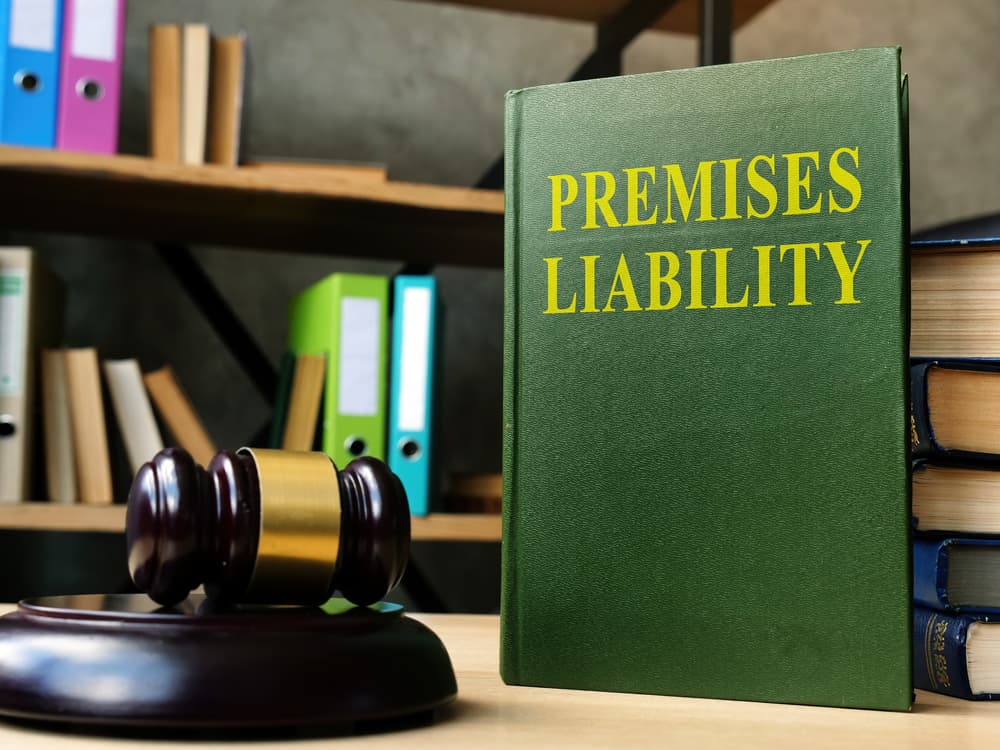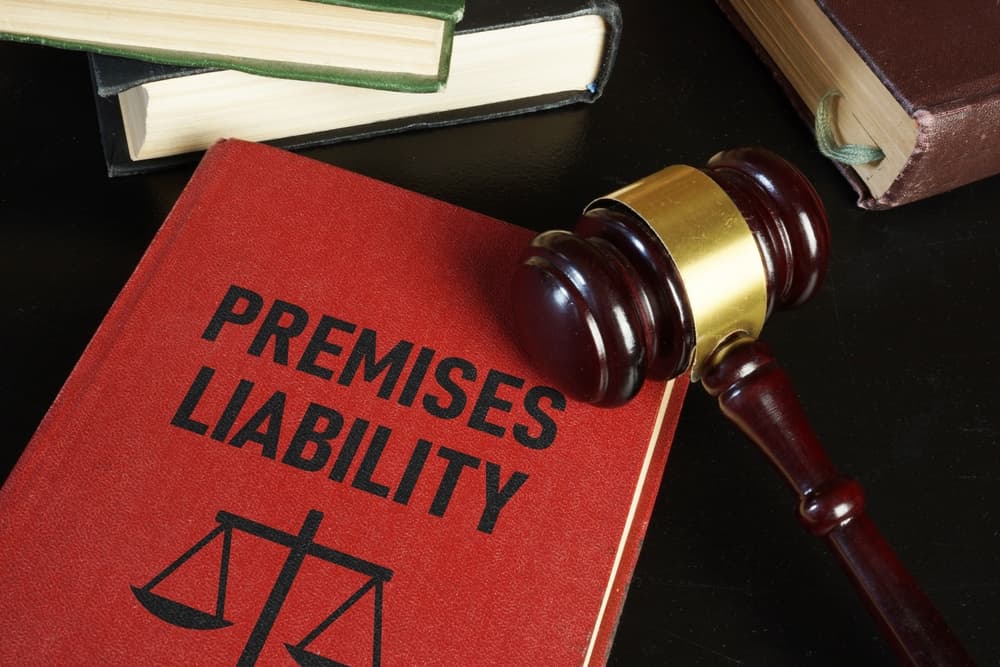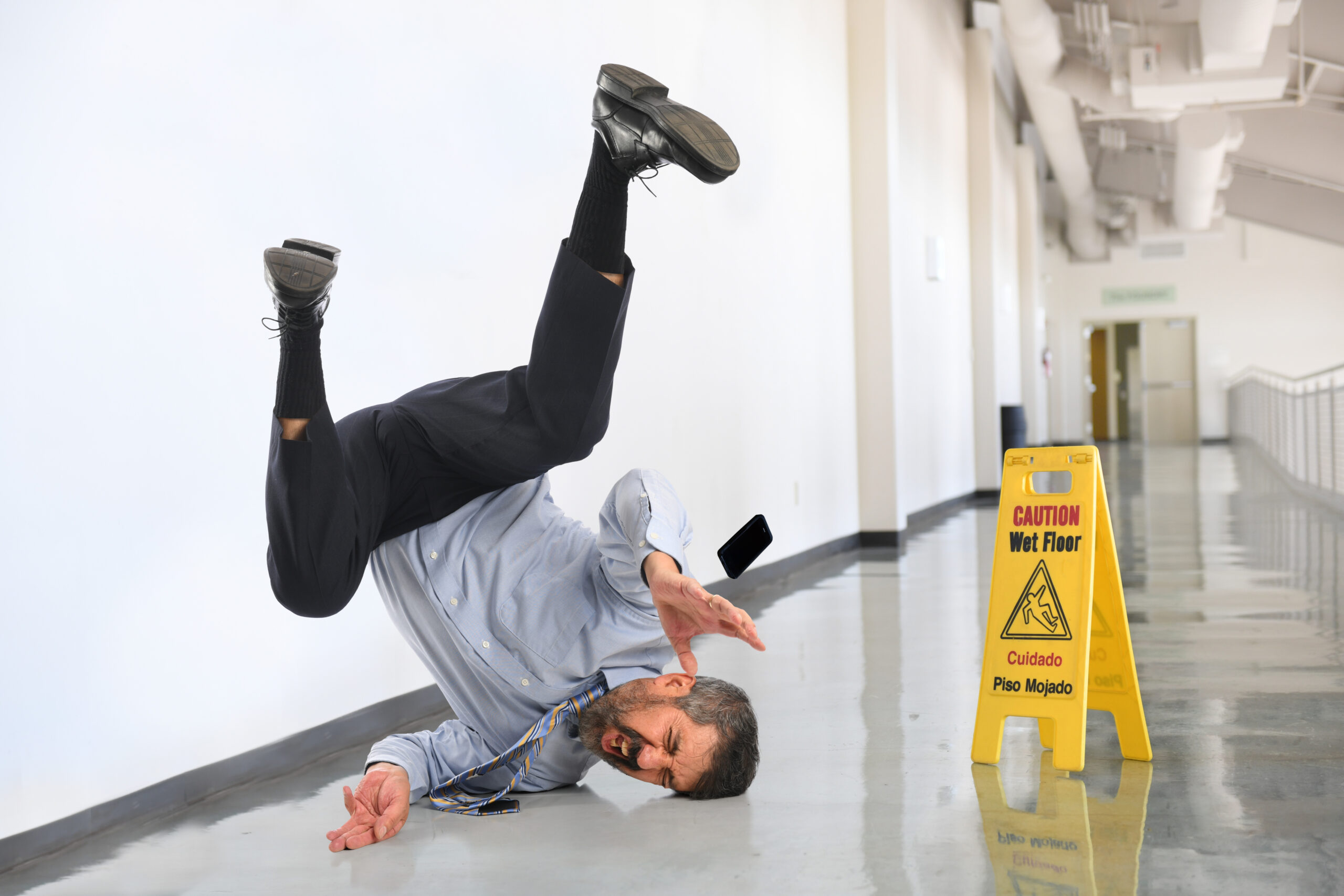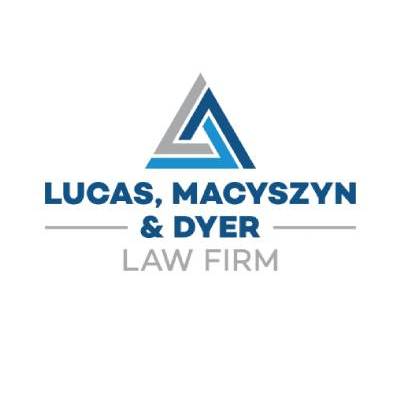
Wet floors, banana peels, and uneven steps, among other things, can cause a person to fall unexpectedly and suffer injuries. Some people believe these are pure accidents and they have no legal recourse, while others ask if they can sue for a slip and fall accident.
If you suffered an injury on someone else’s property, you have the right to pursue compensation. Many victims assume the property owner’s insurance company will do the right thing and pay for losses, but sometimes, a victim must file a personal injury lawsuit. If you fell and suffered injuries, you must work with a local New Port Richey slip and fall attorney to know all your legal options.
Slips and Falls are Premises Liability Cases
Slip and fall cases are personal injury cases. However, they have a unique designation as premises liability claims. The concept of premises liability is that someone enters a property under an invitation, and the property owner keeps them safe while they are on the property. Along with other personal injury cases, claimants must show negligence on behalf of the property owner to obtain compensation. You must discuss your rights with a local lawyer who handles premises liability claims.
Do I Have a Slip and Fall Case?
If there is nothing wrong with a property and you simply lose your balance and fall, the property owner or business will not be liable for your injuries. The underlying issue with slip and fall cases is proving there was a preventable hazard on the property that caused you to fall.
Hazardous conditions that commonly cause accidents are wet floors, unmaintained structures, cracked sidewalks, debris in walkways, and many more. You also must show the property owner knew or should have known the hazard existed. Since this is easily debatable, it is often the hardest part of your claim.
You have a slip and fall case when the property or business owner knew about the hazard and did nothing to remedy it or warn visitors about it. Much of this is speculation until your lawyer can gather evidence to prove these elements. The only way to know if you have a viable case is to speak with a local premises liability lawyer.
What Are Common Slip and Fall Injuries?
Significant losses can result from slip and falls due to the injuries that victims can suffer. Since these accidents can happen in several ways, injuries vary by case. Many people walk away with minor injuries, and others with lifelong disabilities. Anyone with any injury symptoms must seek medical attention to address their injuries and determine a treatment plan.
Common slip and fall injuries include:
- Spinal cord trauma and paralysis
- Broken bones
- Strains and sprains
- Neck injuries
- Back injuries
- Traumatic brain injuries
The severity of these injuries will affect your settlement award and recovery options. The more severe the injuries, the more you will likely need in your settlement.
Do I Need to Prove Negligence?
A misconception we often hear is that since someone slipped and fell on someone’s property, they are automatically entitled to compensation. It should work in a straightforward manner, but it does not.
Injury victims have the burden of proving the property owner was negligent and that negligence was the cause of the incident and subsequent injuries. The first part of proving negligence is showing you were lawfully on the property and the owner owed you a duty of care. The majority of slip and fall cases happen on business properties, making duty easier to prove.
Owners must take reasonable action to keep invitees safe on the premises. They should address any defective or dangerous conditions on the property. When they do not, it is a breach of duty and evidence of negligence.
Proving negligence also involves proving causation, which entails linking the fall to your injuries. You must also show your injuries led to damages, which is the final element of proving negligence.
Who is Liable for Your Slip and Fall?
Before you can take any legal action, the first thing to determine is who is liable for your injuries. Property owners are usually responsible, but not always. Pursuing a claim against the correct party is of the utmost importance.
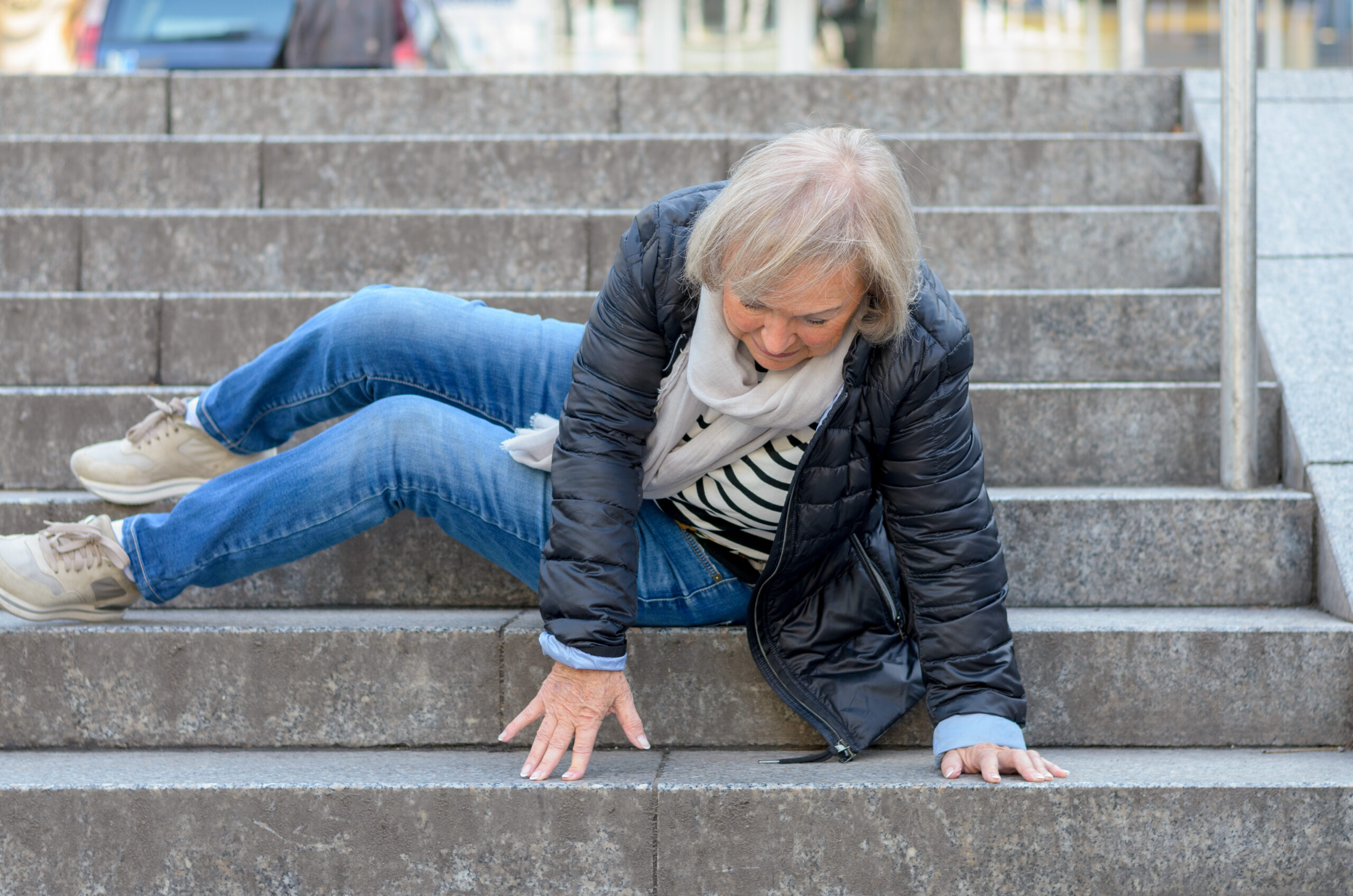
Your premises liability lawyer can look at the various parties that can be liable, including:
- Property owner: the most likely culprit is the property owner, and that is where the investigation will focus. If they were negligent, then they must answer for your losses.
- Business owners: the business owner and the property owner might not be the same party. Many business owners will buy a space and lease out different units. If the business owner was responsible for maintaining certain aspects of the property and did not, they must be accountable for their inaction.
- Subcontractor or contractor: They are liable if a contractor or subcontractor installed an unsafe walking surface or flooring materials. They are also responsible if their employees create a hazardous situation resulting in a slip and fall.
- Maintenance or cleaning company: property or business owners can take steps to remedy a situation by hiring a maintenance or cleaning company. If these parties failed to do their job and caused your injuries, you can file a claim against them. Common examples are faulty flooring repairs or lack of slippery floor signs.
- Material manufacturer: flooring materials should be appropriate for the area and foot traffic. If they are unnecessarily slippery, then the manufacturer can be liable.
There is more to a slip and fall case than you might imagine, and you must work with a personal injury law firm with experience handling these types of cases. The right lawyer will identify all liable parties and fight for your compensation.
Slip and Fall Incidents in Stores
The most common slip and falls happen in stores. While falls are common in these facilities, store owners and managers often do not take enough action to prevent them from happening again. Businesses can take action to keep the public out of dangerous areas with proper signage, but often fail to provide these warnings.
If an accident occurs, the law stipulates that the property owner must have constructive knowledge of potential danger. You must show evidence of this knowledge through witness testimony, videos, and documentation. Common essential evidence is surveillance footage, which businesses might record over. Slip and fall victims must move quickly to contact a local slip and fall attorney to preserve this and other evidence.
Landlord Slip and Fall Accidents
Landlords are responsible for keeping the premises safe. If you slip and fall on a rental property, some situations can qualify you to sue the landlord. The caveat is the landlord must be aware of the condition and neglect to resolve it. These cases usually involve accidents in common areas. The most common occurrences are broken handrails, uneven tiles, inadequate lighting, etc., that the landlord should have addressed.
Slip and Fall and Homeowner’s Insurance
If you fall on someone’s personal property, their homeowners’ insurance should compensate you for your losses. However, the insurance company will only pay up to their policy limits. If the insurance policy has a $30,000 limit, that is all they can offer you. If your losses are higher, you must find another avenue for compensation.
One other method will be to sue the homeowner directly, though suing the homeowner can be challenging if they do not have assets to cover your losses. Your lawyer can advise on the best course of action.
Workplace Slip and Fall Accidents
Aside from your home and public areas, you can slip and fall while doing your job. While you generally cannot sue your employer for work-related slip and falls due to workers’ compensation laws, you might sue a third party if the slip and fall happened in another location. For example, if you visit other venues to meet with clients, and you slip and fall, you might sue that property owner if a hazard caused your fall.
What if My Accident was on Government Property?
The legal process changes slightly when a slip and fall happens on government property. You will face shorter deadlines and different rules. Many claims involving government entities have damage caps, limiting how much you can recover, though any recovery is better than none in these cases. You should hire an attorney who knows how to navigate claims against the government.
When Should You Sue for a Slip and Fall?
You should sue when the insurance company is unwilling to settle for a fair amount. You have the right to pursue compensation, and within those pursuits is filing a lawsuit in civil court. You will sue the property owner or business, but their insurance company will still be the one defending the lawsuit. Insurers have legal teams, and you need your own fierce legal advocate if you file a lawsuit.
Once your premises liability lawyer files a lawsuit, there are additional steps to prepare for trial. If your case goes to trial, lawyers for either side will present evidence to a judge or jury regarding liability and how much you deserve. Most slip and fall cases do not reach trial but it can be necessary in some situations.
Having the right to sue and needing to sue are very different situations. You must discuss the likelihood of your case reaching litigation and other options with your attorney. In most cases, achieving a settlement through insurance negotiations is preferable, though not always possible.
The prospect of suing can also urge the defendant to settle, especially if they know they do not have a strong case. You should also discuss deadlines for litigation since they can affect your chances of recovery. You should not wait to contact a local slip and fall lawyer, as these deadlines are stringent.
How Much is My Slip and Fall Accident Worth?
When calculating your damages, your lawyer will consider various factors. Your age, injuries, recovery, nature of the accident, and time off work will be significant considerations when calculating your case worth. When reviewing your losses, an attorney will look at these issues and determine a fair amount of compensation for all your various losses.
Damages fall into two categories: economic and non-economic. Economic damages address anything tangible, such as medical expenses. Your slip and fall injury can require months of treatment, maybe years.
You will need to pursue compensation for costs like:
- Ambulance transport
- Emergency room care
- Mobility aids
- Pain medication
- Diagnostic exams
- Hospitalizations
- Follow up appointments
Another significant loss that you must pursue a monetary award for is lost current and future income. Sometimes, injuries will keep people from working while they receive treatment. You can add these losses to your claim, including bonuses, promotions, salary, hourly pay, commission, and business opportunities. You can also face having to take a lower-paying position, switching careers, or needing vocational training.
Special Damages
Some injuries are severe, and they prevent people from living everyday life as they once did. Traumatic brain injuries, spinal injuries, fractures, and more can cause discomfort and inconvenience. You can request pain and suffering damages when your injury prevents you from living your life.
Wrongful Death
Some slip and fall injuries can be fatal, especially if a victim falls down stairs or a senior falls and fractures their hip, requiring risky surgery. Tragedy can strike and leave families without a loved one.
If someone dies from a slip and fall accident or succumbs to their injuries later, it can result in a wrongful death claim.
Families can seek awards like:
- Final medical expenses
- Loss of companionship
- Loss of parental guidance
- Loss of financial support
- Funeral, burial, or memorial services
- Loss of household contributions
This is not a complete list. There are many other losses families and victims can suffer in slip and fall accidents. You must speak with a slip and fall lawyer to calculate all your losses.
Contact a Slip and Fall Lawyer Near You

The aftermath of a slip and fall can be chaotic, and you may not know where to turn. The property owner might file an incident report and make you feel they will handle everything. What usually happens is the insurance company fights back and refuses to pay what your case is worth. Discuss your recovery options, including a possible lawsuit, with a slip and fall lawyer during a free consultation.

